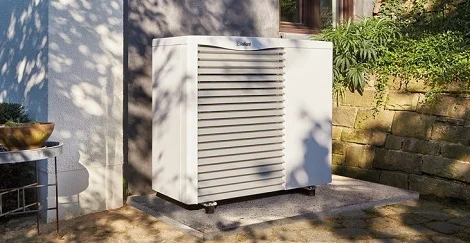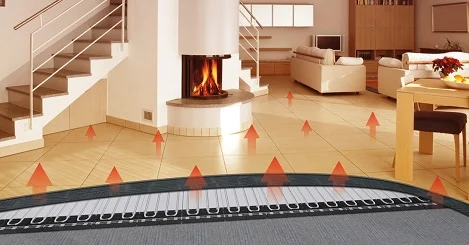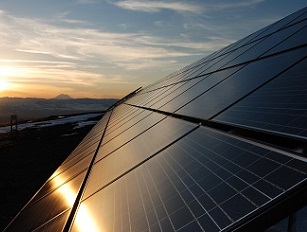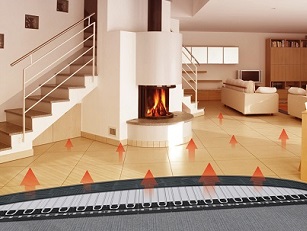Last updated: June 2023
Our society has relied heavily on fossil fuels since the Industrial Revolution. But in the third quarter of 2019, various types of renewable energy provided more electricity to UK homes and businesses than fossil fuels for the first time since the original power plant was fired up in 1882.
Renewable heat is a vital part of the push towards using sustainable energy sources. According to the Energy Saving Trust, more than half the money spent on fuel domestically goes towards heating and hot water. There are also many motivations for commercial buildings including regulatory requirements, lower operating costs and a desire to stand out from competitors.
The key types of renewable energy in the heating sector are air source heat pumps, ground source heat pumps, solar power, and biomass. As a multi-technology supplier, we know underfloor heating can also be an effective addition to a renewables project. Find each type explained below.
How does an air source heat pump work?
Air source heat pumps (ASHPs) capture heat from the air using the refrigeration cycle. They then provide heat to properties through radiators, underfloor heating and hot water via suitably sized cylinders.
ASHPs work by absorbing air at low temperatures over a glycol mixture. They pass this fluid through a compressor and raise its temperature, then transfer this heat to a building’s heating and hot water circuits. Air-to-air systems can also produce warm or cool air which is distributed to rooms via internal fans.
This technology can lower fuel bills and even generate a return through the UK government’s Renewable Heat Incentive (RHI).
It can also reduce a building's carbon footprint, deliver heat from external ambient temperatures as low as -25C and doesn’t require fuel storage or a delivery system.

How does a ground source heat pump work?
Ground source heat pumps (GSHPs) are similar to ASHPs but use underground pipe arrays or boreholes to capture heat from the ground, before transferring it to the same elements of a property that ASHPs do.
They absorb heat from the ground into a glycol fluid in a collector array and then pass it through a heat exchanger. GSHPs offer many of the same benefits as ASHPs and can be more efficient – up to 400% – due to the consistent temperature under the surface of the ground. Installation is more costly and labour intensive than with ASHPs, however. Ground loop requirements can be calculated by our in-house design team and don’t require planning permission.

How does biomass energy work?
Also known as wood-fuelled heating, biomass systems burn wood pellets, wood chips and logs to provide warmth for heating systems and domestic hot water production. Biomass systems can also be used effectively in commercial buildings.
Biomass fuels are both sustainable and renewable as they’re part of the natural carbon cycle. A biomass boiler offers significant savings compared to oil and liquid petroleum gas (LPG) heating systems and can qualify for the RHI.

How does underfloor heating work?
Most modern renewables projects involve the use of multiple technologies – and underfloor heating can be particularly effective when combined with ASHP and GSHP systems. It can be used to replace radiators and is more environmentally friendly and cost-effective to run than traditional heating systems.
The two main forms of underfloor heating are electric and water. Electric systems use cabling or mats to generate heat when connected to mains electricity, while water systems pump water from a heat source through plastic pipes.
Both can distribute heat evenly around a room and create extra space by eliminating the need for radiators or visible pipes.
Meet our Energy Efficiency team
We aim to make energy efficiency a focal part of any new build or retrofit project. As a tradesperson your customers may ask you for advice, specifications and quotes for the various types of renewable energy discussed above – and we’re here to help.
Our Energy Efficiency team is the only dedicated renewables design and estimation team in the UK. We supply MCS-accredited products from leading manufacturers, while all our designs are protected by our own professional indemnity insurance.
Email us at energyefficiency@cityplumbing.co.uk or call 0800 688 8388 to speak to one of our experts.
Other articles

How to become a renewable energy engineer
03 Mar 2022 ・ 7 mins

Smart Home Heating Controls: A Guide for Installers
03 Mar 2022 ・ 4 mins

Electric or water underfloor heating? An installer's guide
03 Mar 2022 ・ 5 mins



